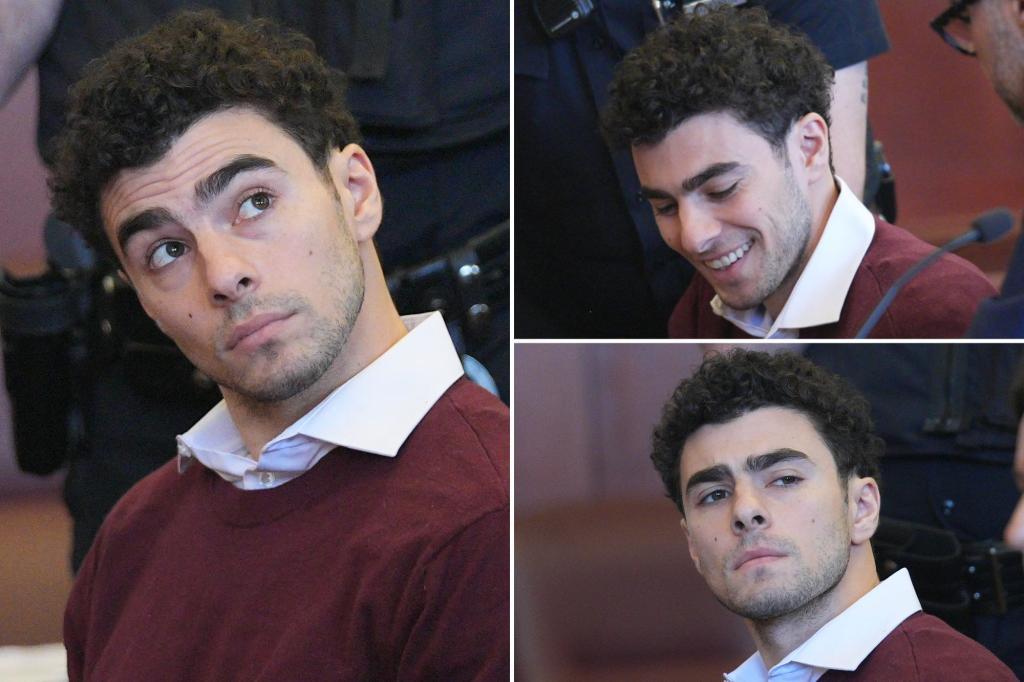Luigi Mangione, a 26-year-old man, stood before Judge Gregory Carro in a Manhattan Supreme Court, pleading not guilty to the first-degree murder of Brian Thompson, the CEO of UnitedHealthcare. The courtroom, filled predominantly with women, observed as Mangione, clad in a maroon sweater, tan khakis, and orange prison shoes, delivered his plea. His attorney, Karen Friedman Agnifilo, voiced her concerns regarding her client’s right to a fair trial, alleging prejudice stemming from statements made by government officials. She criticized the treatment of Mangione, describing him as a “human ping pong ball” caught in the crossfire of public opinion and official pronouncements. This initial court appearance set the stage for a complex legal battle, with the defense asserting Mangione’s innocence against a backdrop of intense public scrutiny.
Agnifilo’s critique extended to Mayor Adams and the NYPD, specifically targeting the handling of Mangione’s perp walk. She deemed the mayor’s presence at the perp walk unconstitutional, accusing him of attempting to distract from other pressing issues. Agnifilo contended that the mayor, with his background, should be a staunch advocate for the presumption of innocence. This public condemnation of the mayor’s actions further fueled the controversy surrounding the case, raising questions about the balance between public safety concerns and the protection of individual rights. The defense’s early and aggressive stance signaled their intention to challenge not only the evidence against Mangione but also the narrative surrounding his arrest and the potential influence of external pressures on the judicial process.
The charges against Mangione, both federal and state, paint a picture of a premeditated and meticulously planned crime. He faces 11 state counts, including first-degree murder in furtherance of terrorism, second-degree murder, and several illegal gun possession charges. The federal charges include murder, gun, and stalking offenses. This multifaceted legal landscape adds another layer of complexity to the case, with the possibility of concurrent trials in both state and federal court. The severity of the charges, including the potential for a life sentence without parole, underscores the gravity of the alleged crime and the high stakes for both the prosecution and the defense.
The narrative surrounding Mangione’s alleged actions further intensifies the public intrigue. Following the shooting of Thompson outside a Midtown Hilton hotel, Mangione reportedly fled the scene using a Citi Bike and then boarded a bus, initiating a five-day nationwide manhunt. His eventual capture in Altoona, Pennsylvania, at a McDonald’s after disembarking a Greyhound bus, added a dramatic element to the story. The details of his escape and subsequent apprehension contribute to the portrayal of Mangione as a calculating individual, capable of planning and executing a complex crime and evading capture.
Authorities have painted a portrait of Mangione as an Ivy League graduate from an affluent Baltimore family, whose motive for the alleged murder stemmed from a grievance against the health insurance industry, which he perceived as “parasitic.” This alleged motive has sparked unexpected support for Mangione from individuals who harbor resentment towards the healthcare system. This unusual public reaction adds another dimension to the case, highlighting the contentious nature of healthcare in the United States and the potential for this issue to influence public perception of the trial. The emergence of this support base complicates the narrative and raises questions about the potential impact of public sentiment on the jury’s deliberations.
As the legal proceedings unfold, the question of which jurisdiction will take precedence, state or federal, remains unanswered. Mangione is currently being held at the Metropolitan Detention Center in Brooklyn awaiting his next court appearance, scheduled for February 21st. Manhattan District Attorney Alvin Bragg, in announcing the charges, described the crime as “a frightening, well-planned, targeted murder that was intended to cause shock and attention and intimidation.” This statement underscores the prosecution’s view of Mangione as a dangerous individual who poses a significant threat to society. The upcoming legal battles will determine the validity of these claims and the ultimate fate of Luigi Mangione.

